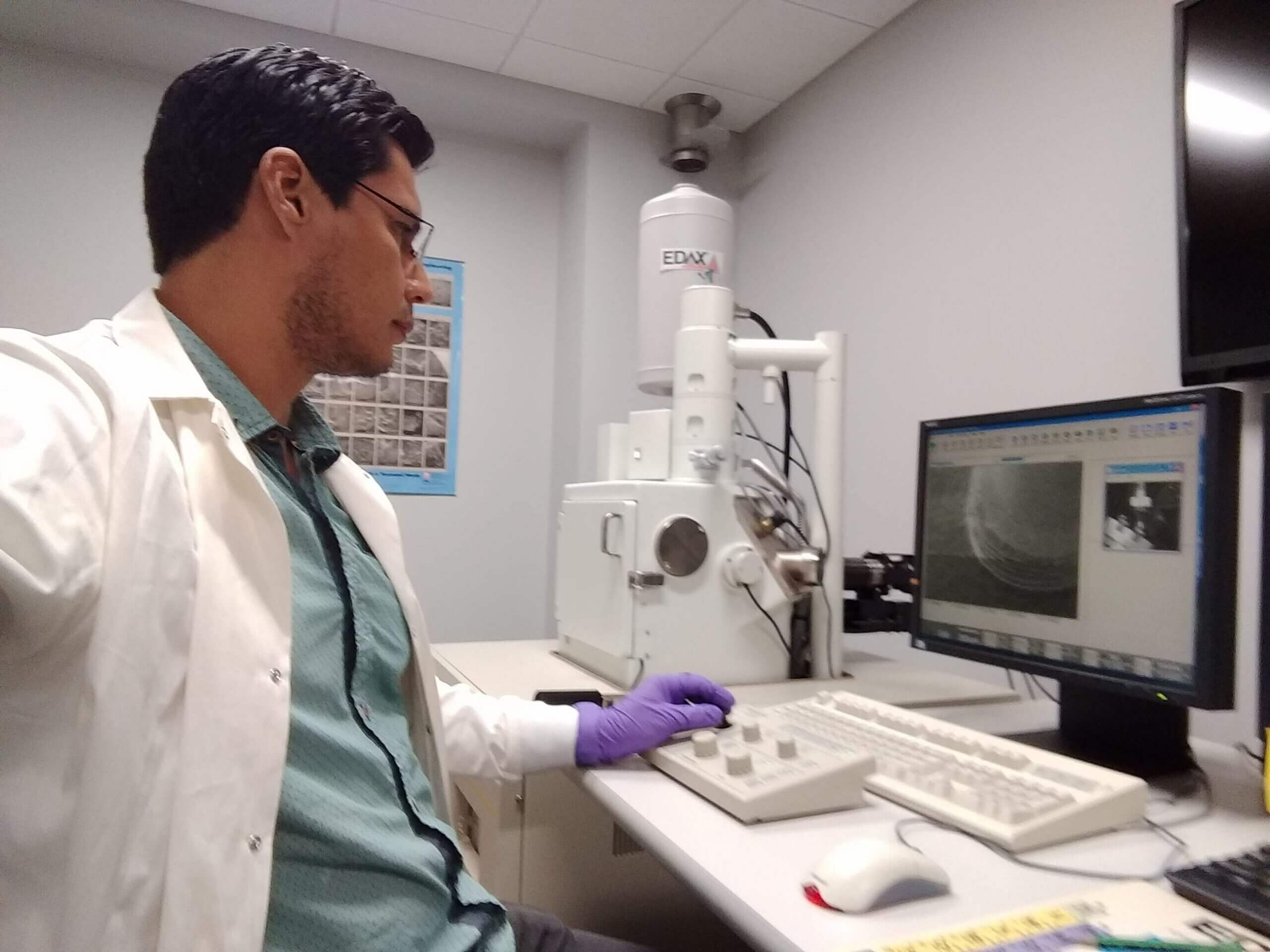Jorge Manrique Castro moved his family from Colombia to Orlando in 2019 to pursue his version of the American dream. After completing his undergraduate studies in electrical engineering in Colombia and a Master of Science from the University of Central Florida, he decided to pursue his Ph.D. at UCF. Thanks to a research opportunity supported by the Florida High Tech Corridor’s Matching Grants Research Program (MGRP), he’s firmly on track to both earn his doctorate in 2024, and join the research and development workforce at the same time.
The MGRP fosters applied research between industry partners, and faculty and student researchers at the University of Central Florida and the University of South Florida. The grants – which match industry partner cash and in-kind investments – directly fund the work of expert faculty and create an opportunity for their students to participate in collaborative research in The Corridor’s 23-county region. At the same time, the program provides a cost-effective way for industry partners to access the expertise of renowned researchers, build relationships with students who may someday become employees, and conduct solution-driven research and development with the opportunity to solve society’s most difficult challenges – a clear win-win for everyone involved.
“The opportunity to work outside academia is invaluable,” said Jorge, who participated in Dr. Swaminathan Rajaraman’s semiconductor device research group at UCF, supporting work in conjunction with Primoridia Biosystems Inc., a California- and Florida-based startup that develops biotechnology systems, microdevices and materials for its clients. Jorge worked on two research projects with Dr. Rajamaran’s group – one supported by a $25,000 Corridor match, and the other by an $11,400 match. “I learned about adhering to milestones and deliverables, gained experience in time management, wise use of resources, and understanding the responsibilities of the different organizations involved. The program offers good background for moving to the professional world and is awesome for students’ resumes and entrance to the job market,” he added.
Dr. Pranav Patel, vice president of research and development for Tampa-based SGN Nanopharma Inc., visited the USF Tampa Bay Technology Incubator in early 2017 as part of an effort to initiate a research and development lab for his company. The SGN team – which focuses on developing cannabinoids to generate ophthalmic, neural and transdermal formulations to address unmet medical needs – was deeply impressed with the university’s program and staff, and the visit kickstarted a strong collaborative relationship now in its fifth year. That alliance has provided students with internship and volunteer opportunities, offering hands-on experience with cutting-edge technology while simultaneously allowing SGN to develop a much-needed talent pipeline through the formation of relationships with USF grad students who intern in their labs. Collaboration with the MGRP was a natural evolution for the partnership.
“The MGRP collaboration is crucial for promoting research and knowledge, as well as developing a trained workforce,” said Dr. Patel. “Collaboration between industry and academia is vital for technology research innovation and progress. This program helps us create and nurture a local talent pool in the field of pharmaceutical industry.”
 SGN has hired more than two dozen USF graduates through its relationship with the university. One of those graduates is Nashwa El Hadidy, who worked with Associate Professor Sheeba Varghese Gupta on an MGRP-supported SGN project. The 2020 initiative’s goal was to develop a nano-formulation delivery system of cannabinoids and other drugs for neuropathic pain and ocular disorders with a goal of creating alternative treatments to opioids and non-steroidal anti-inflammatory pharmaceuticals.
SGN has hired more than two dozen USF graduates through its relationship with the university. One of those graduates is Nashwa El Hadidy, who worked with Associate Professor Sheeba Varghese Gupta on an MGRP-supported SGN project. The 2020 initiative’s goal was to develop a nano-formulation delivery system of cannabinoids and other drugs for neuropathic pain and ocular disorders with a goal of creating alternative treatments to opioids and non-steroidal anti-inflammatory pharmaceuticals.
Nashwa, a mother of three, earned a master’s degree in medical sciences in 2018 and followed it up with a professional science master’s in biotechnology, completed in 2021. She plans to pursue a Ph.D. in the future – a goal she credits to her SGN internship. “Dr. Patel has provided me and the other lab team members with outstanding mentorship,” she explained. “My SGN internship provided me with a scientific learning environment, a real-life experience in research and development, and a great application of the basic medical and molecular knowledge that I’ve always been interested in.”
“I am so thankful for where I stand now,” Nashwa concluded. “I’m grateful for the path that led me to work with SGN and contribute to the company’s goal in teaching more students, spreading knowledge and releasing products that are beneficial to patients in need.”
Since it started in 1996, the MGRP has helped more than 1,000 students like Jorge and Nashwa follow their dreams in STEM fields, including many who have gone on to work for high tech firms in The Corridor region.
To learn more about leveraging the MGRP as a valuable pipeline for R&D translation and workforce development, visit https://floridahightech.com/innovation-investments/research-grants/.

